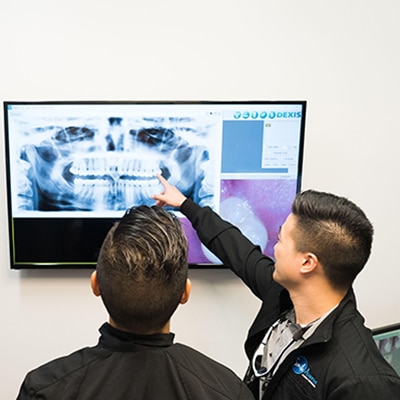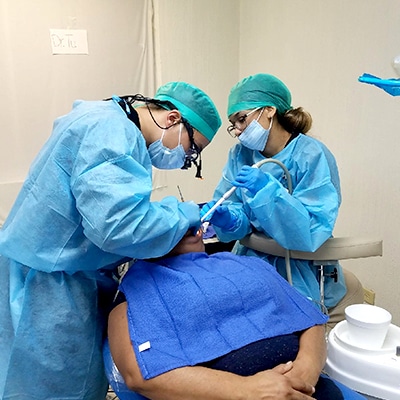
When the salivary glands in the mouth don’t produce enough saliva to keep the mouth moist, it’s known as xerostomia (zeer-o-STOE-me-uh). Dry mouth is frequently brought on by aging, medication side effects, or cancer radiation treatment. Dry mouth is less frequently caused by an illness that directly affects the salivary glands. Additionally, you can momentarily suffer from dry mouth if you’re thirsty or nervous about anything.
Some folks find dry mouth to be just bothersome. For others, the condition of their teeth, gums, and overall health might be significantly impacted by xerostomia. It may also have an impact on people’s eating habits and levels of enjoyment.
Symptoms
Insufficient saliva production may manifest through consistent symptoms:
- Mouth dryness or stickiness.
- Thick and stringy saliva.
- Bad breath.
- Difficulty in chewing, speaking, and swallowing.
- Dry or sore throat with hoarseness.
- Tongue dryness or grooves.
- Altered taste perception.
- Challenges with denture wearing.
- Lipstick adherence to teeth.
Saliva plays a crucial role in preventing tooth decay by rinsing away sugar, and food particles, and neutralizing harmful bacteria. A deficiency in saliva may impact your ability to taste, chew, swallow, and digest food effectively.
For persistent dry mouth, consult Dr. Patrick Vuong, a trusted dentist in Katy, TX. Schedule an appointment for expert guidance.
Causes
Dry mouth occurs when salivary glands produce insufficient saliva, often influenced by:
- Medications: Numerous drugs, especially for depression, high blood pressure, and anxiety, as well as some antihistamines, decongestants, muscle relaxants, and pain relievers, can contribute.
- Aging: Common among older individuals due to changes in medication processing, poor nutrition, and long-term health issues.
- Cancer Therapy: Chemotherapy can alter saliva’s nature and production temporarily, while radiation treatments may damage salivary glands, leading to reduced saliva production.
- Nerve Damage: Injury or surgery causing nerve damage to the head and neck can result in dry mouth.
- Other Health Conditions: Conditions like diabetes, stroke, yeast infection, Alzheimer’s disease, and autoimmune diseases (Sjogren syndrome, HIV/AIDS) may lead to dry mouth.
- Snoring and Mouth Breathing: These habits can contribute to dry mouth.
- Tobacco and Alcohol Use: Smoking, chewing tobacco, and alcohol consumption can intensify xerostomia symptoms.
- Substance Abuse: Use of certain legal or illegal drugs, such as methamphetamine or marijuana, can induce serious dry mouth and dental damage.
Risk factors
Individuals at an elevated risk of experiencing dry mouth include those who:
- Use medications with xerostomia listed as a potential side effect.
- Undergo cancer treatment.
- Exhibit nerve damage in the head and neck area.
- Have underlying health conditions like diabetes, stroke, Alzheimer’s disease, Sjogren syndrome, or HIV/AIDS.
- Use tobacco products.
- Consume alcohol.
- Engage in the use of street drugs.
- Consume sugary or acidic foods or candies.
Complications
Insufficient saliva causing xerostomia can result in:
- Elevated plaque, tooth decay, and gum disease.
- Formation of mouth sores.
- Development of a yeast infection in the mouth, commonly known as thrush.
- Occurrence of sores or split skin at the corners of the mouth, along with cracked lips.
- Compromised nutrition due to difficulties in chewing and swallowing.
For comprehensive dental care, consider visiting the nearest dental office in Katy, TX. It’s important to note that your dentist in Katy, TX, is readily available to assist in dental emergencies. Ensure to schedule an appointment to address both your and your children’s dental needs.









